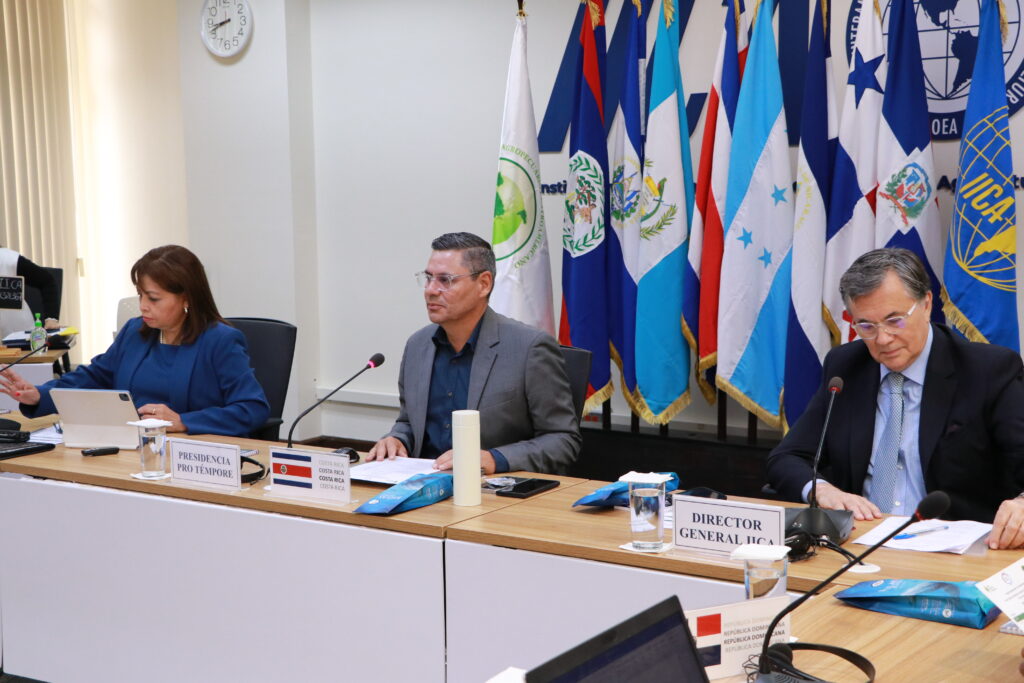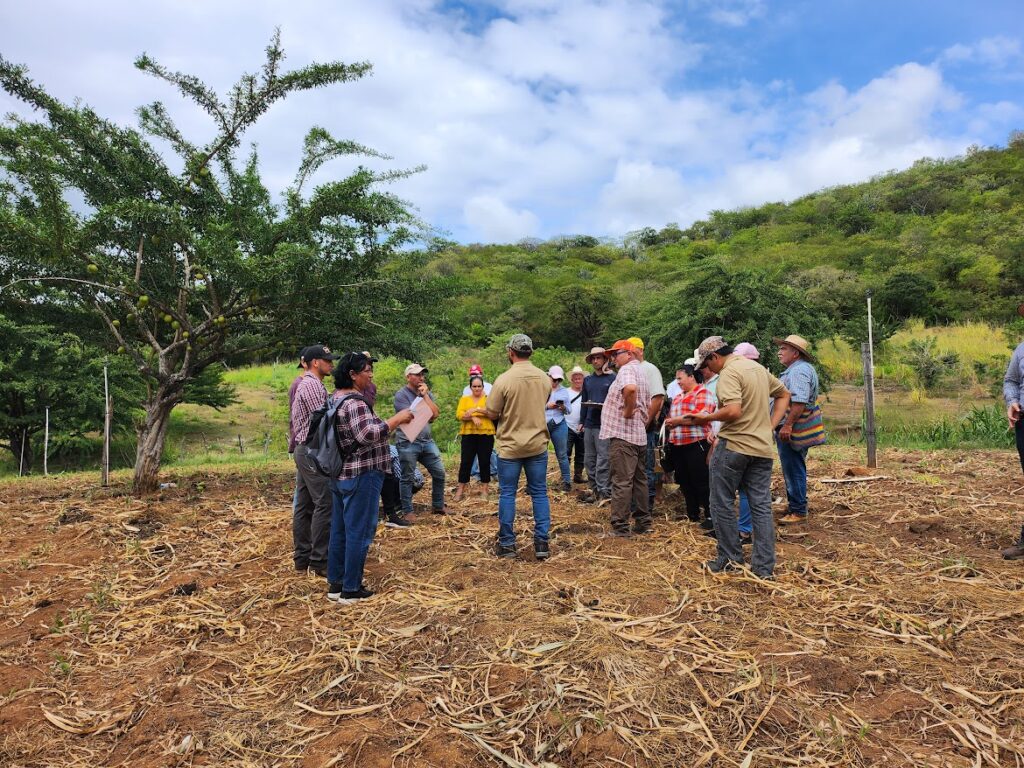El IICA y PROMECAFE continuarán con la ejecución de acciones de corto, mediano y largo plazo para enfrentar el impacto de la roya en esta región.
San José, Costa Rica, 29 de julio, 2014 (IICA). Con la intención de responder a tiempo al avance de la roya del café, incorporar información sobre otras plagas y prevenir los efectos socioeconómicos y ambientales que ocasiona la enfermedad, los países centroamericanos deben dar mayor impulso al Sistema Regional de Alerta Temprana (SRAT) creado para enfrentar esta epidemia, concluyeron varias organizaciones del sector cafetalero y organismos internacionales reunidos en Costa Rica.
El SRAT es una herramienta tecnológica desarrollada como parte del Programa Integrado de Combate a la Roya del Café, promovido por el Instituto Interamericano de Cooperación para la Agricultura (IICA) y el Programa Cooperativo Regional para el Desarrollo Tecnológico y Modernización de la Caficultura (PROMECAFÉ), entre otras organizaciones, desde el 2013.

El programa también impulsa la investigación sobre nuevas variedades de plantas de café resistentes a enfermedades, con el fin de mantener estables los niveles de producción regional y asegurar la calidad del café centroamericano como referencia en el mercado mundial.
Reunidas en la sede central del IICA, las organizaciones vinculadas al sector cafetalero regional, así como varios organismos de cooperación técnica y financieros acordaron dar continuidad al programa por medio del Plan de Acción 2014-2015.
Este plan se enfocará en el manejo integrado de la roya, la investigación, la atención de la población vulnerable y el desarrollo de capacidades institucionales en Centroamérica y el Caribe.
El IICA gestiona la Secretaría Ejecutiva de PROMECAFE. Armando García, quien ocupa este cargo, expresó que estas acciones permitirán mitigar los efectos de la roya del café y disminuir su impacto en la seguridad alimentaria y nutricional de la región.
“La roya es un síntoma de los problemas del sector cafetalero en nuestros países, por lo que demanda atención integral y estratégica. El plan no pretende resolver deficiencias estructurales, pero sí contribuye a enfrentar las consecuencias que provoca la enfermedad”, afirmó.
El plan de acción, preparado por el IICA, PROMECAFE y el Consejo Agropecuario Centroamericano (CAC), procura impulsar acciones que faciliten soluciones inmediatas para los productores y permitan la sostenibilidad económica, social y ambiental de la caficultura regional.
Además de estas instituciones, en su ejecución y planeación participan la Organización de las Naciones Unidas para la Alimentación y la Agricultura (FAO), el Departamento de Agricultura de los Estados Unidos (USDA), la Agencia de los Estados Unidos para el Desarrollo Internacional (USAID), World Coffee Research (WCR), el Banco Centroamericano de Integración Económica (BCIE), el Banco Interamericano de Desarrollo (BID), la Comisión Económica para América Latina y el Caribe (CEPAL), el Centro Agronómico Tropical de Investigación y Enseñanza (CATIE) y la Secretaría del Consejo Agropecuario Centroamericano (SECAC), entre otras.
El Programa Integrado de Combate a la Roya del Café responde a un acuerdo tomado por los Ministros de Agricultura centroamericanos (quienes integran el CAC) y a la Declaración de Jefes de Estado y de Gobierno de los países del Sistema de la Integración Centroamericana (SICA), suscritos en febrero del 2013 en Costa Rica, ante la crisis provocada por la roya en la región.
PROMECAFE es una red de investigación y cooperación formada por los institutos nacionales del café de Guatemala, El Salvador, Honduras, Costa Rica, Panamá, República Dominicana, Jamaica y Perú, así como el IICA y el CATIE. Existe hace 36 años.
Más información:
armando.garcia@iica.int










